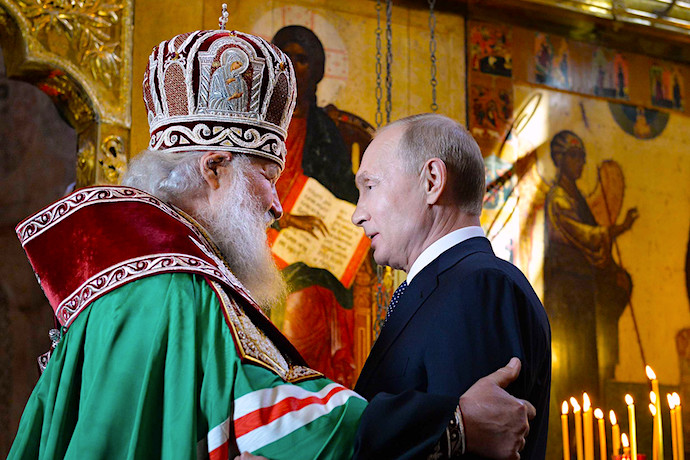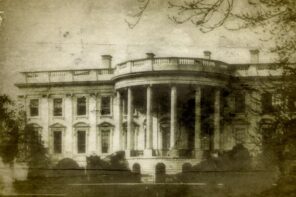If you’ve been educated in North America or Western Europe, you might be forgiven for having never heard of the Battle of Kulikovo, a battle between Russian forces and the Golden Horde, on September 8, 1380, in which the Russian forces emerged victorious. Though Mongol domination of what is today Russia didn’t end that day, the victory at Kulikovo is roughly regarded as the beginning of the end of the Mongol occupation and the birth of modern Russia. September 8th is also the date on which Orthodox Christians (along with Catholics and some Anglicans) commemorate the birth of the Virgin Mary. The coincidence of these two dates has been an important touchstone in Russian self-understanding.
The Russian Orthodox Church still uses the so-called “Old Calendar,” according to which this past Wednesday (September 21st) was September 8th. The celebration of this major holiday occurred the day after Russian President Vladimir Putin announced his “partial mobilization” of some 300,000 Russian reservists, a clear response to the string of defeats Russia has suffered in Ukraine in recent weeks.
Patriarch Kirill of Moscow, the head of the Russian Orthodox Church, consequently used the celebration of the feast to demonstrate once again that he is fully prepared to act as Putin’s religious propaganda machine. While celebrating the Divine Liturgy on Wednesday at the Zachatyevsky Monastery, which is traditionally considered the oldest convent in Moscow (a historically dubious claim), the Patriarch begins his sermon by recalling, not the birth of the Holy Mother, but the birth of the Fatherland at the Battle of Kulikovo.
“Today is significant in the history of our Fatherland for many reasons, but perhaps the most striking and significant is the Battle of Kulikovo,” he tells the gathered faithful, before noting that the enemy hadn’t known that the Russians’ prayers were likely more effective on a day dedicated to the Virgin Mary, implying that the Russian victory that day had been a direct result of the interventions of the Holy Mother.
Not that the woman whom Orthodox Christians widely refer to as the Theotokos (the God-bearer)—i.e. the Virgin Mary, whose birth is the cause of the feast day—gets much attention the rest of the oration. Because she doesn’t. Instead, Patriarch Kirill remains much more focused on the famed battle and its lessons for his contemporary flock. He declares that while retreat might be possible from worldly things, it’s impossible to retreat “from faith,” a powerful line, now a standard in his sermons, which draws an equivalency between Russian aggression in Ukraine and defending and living the Orthodox faith.
He then goes on to once again erase Ukraine from the historical map, saying that the people ought to pray that “Holy Russia would be reunited.” As he’s made clear before, Ukraine is not, to his mind, an independent nation, but a rogue territory within Russia. And keeping Ukraine as part of Russia is a sacred obligation. It’s also apparently what victory looks like for the Virgin Mary (she does get a shout out at the end).
It’s easy, after all these months, to stop listening to the ramblings of a far-off cleric who’s clearly in the pocket of a dangerous authoritarian who has his finger on a nuclear button. Clearly, it’s not good for one’s peace of mind. Add to that his insistence on referencing history that’s completely obscure in the West.
But Patriarch Kirill is sending a clear message about how he, and possibly Vladimir Putin, see the war in Ukraine and how they would like the Russian people to see it. If we stop paying attention we do so at our peril.





